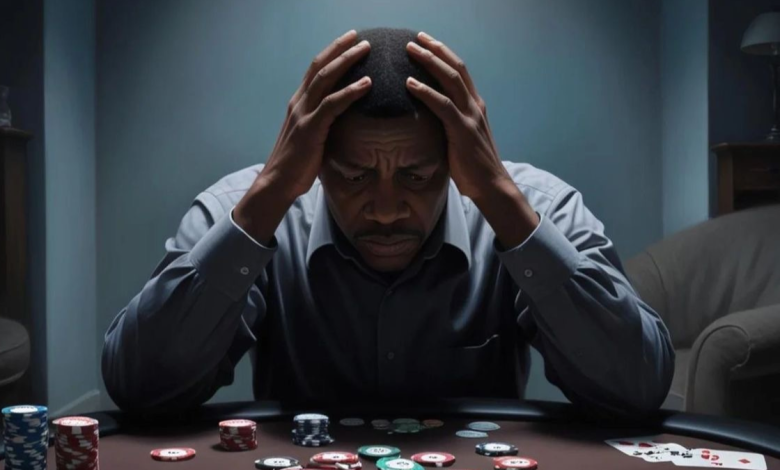Gauteng’s Gambling Addiction Support Systems: Are They Enough in 2025?

Gauteng, South Africa’s economic engine, is also the heart of the country’s legal gambling industry. From mega-casinos and slot machines to a rising tide of online betting apps, the province continues to see exponential growth in gambling activity. But this prosperity comes at a cost: gambling addiction is quietly becoming a public health crisis.

As of 2025, the crucial question is: Are Gauteng’s gambling addiction support systems enough to handle the growing need for help?
ALSO READ: The Rise of Online Gambling in Gauteng: Stats, Trends & What to Expect in 2025
Gambling in Gauteng: A Double-Edged Sword
According to the National Gambling Board (NGB), South Africa’s gambling sector generated more than R34.6 billion in gross gambling revenue in 2023, with Gauteng contributing nearly 40% of that total. The province’s prominence in the sector is undeniable, yet it also leads in gambling-related harm.
The South African Responsible Gambling Foundation (SARGF) reported in its 2024 annual review that over 430,000 people nationally show signs of gambling addiction—with Gauteng ranking highest in terms of individual cases and treatment referrals.

Problem gambling has been linked to serious consequences, including financial ruin, mental health disorders, and family breakdowns. The issue is especially dire in low-income communities where gambling is seen as a quick escape from poverty.
Existing Gambling Addiction Support Systems in Gauteng
Several programs, institutions, and NGOs currently provide support for gambling addiction in the province.
✅ 1. National Responsible Gambling Programme (NRGP)
The NRGP is the most comprehensive and widely accessible program in the country. It provides:
- Free, confidential counseling
- Inpatient and outpatient referrals
- A 24/7 helpline: 0800 006 008
- Ongoing public education initiatives
Funded by the gambling industry but independently run, the NRGP treated over 11,000 new clients in 2024, with nearly 50% located in Gauteng.
✅ 2. Private and Public Treatment Centers
Gauteng is home to various addiction recovery centers, such as
- Houghton House Recovery Centre
- Life at Riverfield Lodge
- SANCA Gauteng
These centers offer structured rehabilitation programs including individual therapy, group support, and aftercare services.
✅ 3. Community-Based and Faith-Based Services
Faith-based organizations and NGOs are increasingly stepping in to help. For example, SANCA (South African National Council on Alcoholism and Drug Dependence) has begun integrating gambling support services into its township substance abuse programs in areas like Tembisa, Soweto, and Mamelodi.
Why These Systems Are Falling Short
Despite these initiatives, multiple challenges are preventing effective support for those battling gambling addiction in Gauteng.
⚠️ Low Public Awareness
The Human Sciences Research Council (HSRC) found in a 2023 study that less than 25% of people struggling with gambling problems knew that free help was available. Many only seek support after hitting a crisis point.
⚠️ Lack of Accessibility
While urban centers like Sandton and Pretoria have multiple services, townships and rural zones remain underserved. There is a need for mobile outreach and multilingual resources to bridge the gap.
⚠️ Online Gambling Escalation
The Financial Sector Conduct Authority (FSCA) highlighted a troubling rise in online and mobile gambling in its 2024 industry report. Underage users, digital addiction patterns, and unregulated offshore platforms are slipping through regulatory cracks. Many support systems are not equipped to treat addiction arising from constant, anonymous access to gambling apps.
⚠️ Underfunding and Regulatory Conflict
Most gambling addiction services are funded by the gambling industry itself, raising concerns about transparency and long-term sustainability. The Gauteng Provincial Government has yet to allocate substantial direct funding toward public addiction support—despite the billions in gambling tax revenue collected annually.
What Needs to Change in 2025 and Beyond?
🔹 1. Expand Government-Funded Programs
The Department of Social Development and the Gauteng Department of Health must prioritize gambling addiction as a public health concern. Funding should be used to embed addiction treatment services within community clinics, schools, and employment centers.
🔹 2. Enhance Regulation of Online Gambling
The National Gambling Board and FSCA should implement stricter controls on digital platforms, including
- Enforced age verification
- Limits on daily betting amounts
- Advertising restrictions during family programming and on youth-targeted social media
🔹 3. Increase Awareness through Community Campaigns
Massive awareness campaigns—using radio, local newspapers, and social influencers—are needed to educate residents about gambling harm and available support. Partnering with churches and youth centers can amplify the message in vulnerable communities.
MORE READS: How Gauteng’s Gambling Laws Changed After 2025 Legislation Review
Final Words: Are Gauteng’s Gambling Addiction Support Systems Enough in 2025?
In short—not yet.
Gauteng’s gambling addiction support systems, while commendable in structure, lack sufficient funding, public visibility, and accessibility. The rise of online gambling has outpaced current support services, especially among young and digitally active populations. If action is not taken swiftly and comprehensively, the social cost of gambling addiction will continue to spiral.
Stakeholders—from government to regulators to civil society—must act collectively to build a stronger, more inclusive support ecosystem.
Need Help?
If you or someone you know is suffering from gambling addiction:
- Call the NRGP Helpline: 0800 006 008
- Visit www.responsiblegambling.org.za.
- Get help via Houghton House or SANCA Gauteng.



